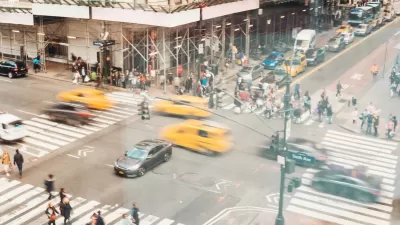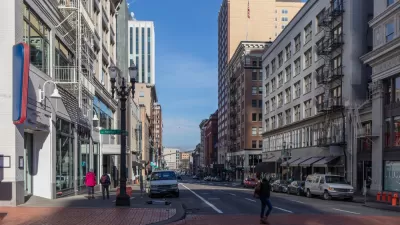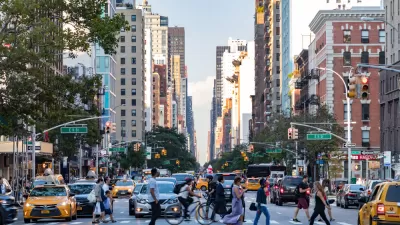The city wants to eliminate traffic deaths by 2045.

Raleigh, North Carolina announced its first Vision Zero plan, a Safe Streets for All strategy aimed at eliminating traffic deaths by 2045 and “shaping a transportation network that reflects the concerns and needs of its citizens.”
As Adrianne Sinclair explains in Hoodline, the plan includes proposals to improve bike and pedestrian infrastructure and make the city’s transportation system “more equitable and user-friendly.”
The program is funded in part by the federal Safe Streets and Roads for All (SS4A) program. According to the city, the plan will identify ways to work toward reducing fatalities and serious injuries by 25 percent every five years and completely by 2045. “As a key component of this plan, the SS4A team will conduct a citywide analysis to identify high-injury and high-risk areas for road users. Through this analysis, the team will utilize a data-driven approach to implement high-impact safety improvements at critical crash hotspots.”
FULL STORY: Raleigh Seeks Community Feedback on Safe Streets for All Plan with Public Meetings and Online Survey

Planetizen Federal Action Tracker
A weekly monitor of how Trump’s orders and actions are impacting planners and planning in America.

Maui's Vacation Rental Debate Turns Ugly
Verbal attacks, misinformation campaigns and fistfights plague a high-stakes debate to convert thousands of vacation rentals into long-term housing.

San Francisco Suspends Traffic Calming Amidst Record Deaths
Citing “a challenging fiscal landscape,” the city will cease the program on the heels of 42 traffic deaths, including 24 pedestrians.

Defunct Pittsburgh Power Plant to Become Residential Tower
A decommissioned steam heat plant will be redeveloped into almost 100 affordable housing units.

Trump Prompts Restructuring of Transportation Research Board in “Unprecedented Overreach”
The TRB has eliminated more than half of its committees including those focused on climate, equity, and cities.

Amtrak Rolls Out New Orleans to Alabama “Mardi Gras” Train
The new service will operate morning and evening departures between Mobile and New Orleans.
Urban Design for Planners 1: Software Tools
This six-course series explores essential urban design concepts using open source software and equips planners with the tools they need to participate fully in the urban design process.
Planning for Universal Design
Learn the tools for implementing Universal Design in planning regulations.
Heyer Gruel & Associates PA
JM Goldson LLC
Custer County Colorado
City of Camden Redevelopment Agency
City of Astoria
Transportation Research & Education Center (TREC) at Portland State University
Jefferson Parish Government
Camden Redevelopment Agency
City of Claremont





























